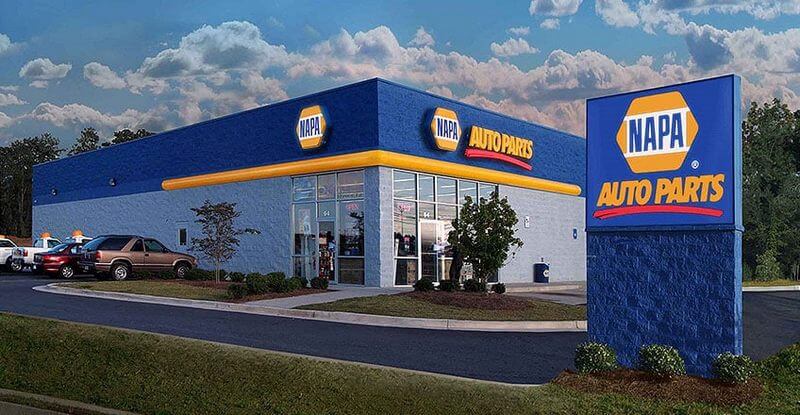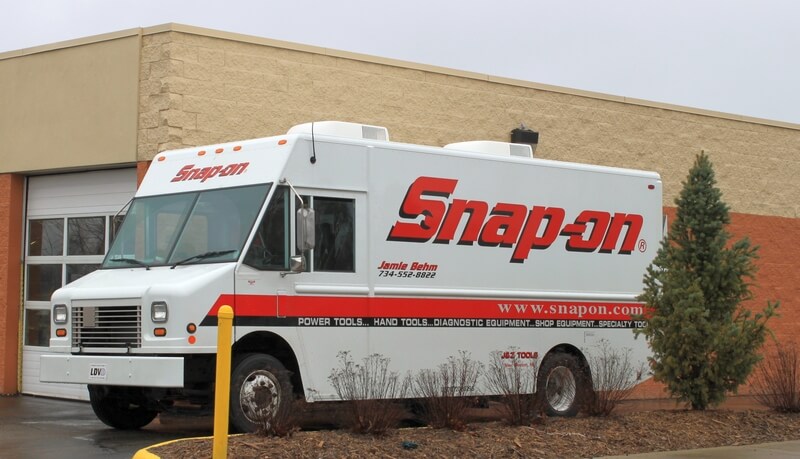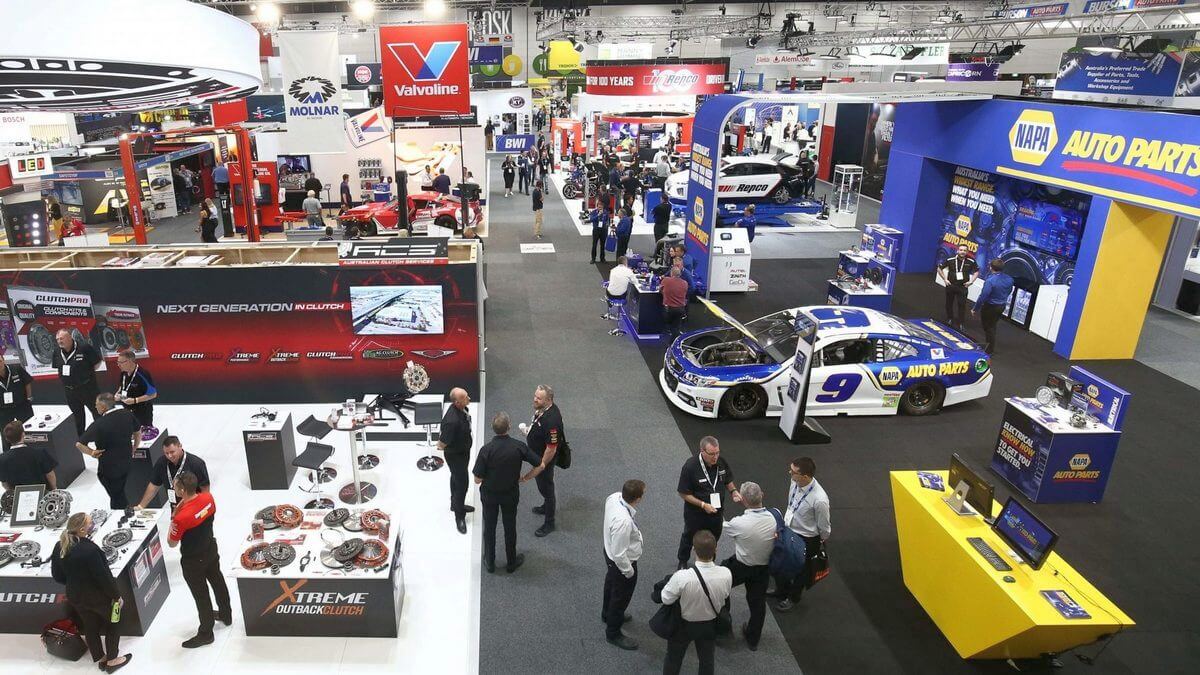Starting an auto repair shop is no small task. You need the right tools, the right space, and, most importantly, reliable access to parts and supplies. Without the right parts on hand, your shop can quickly grind to a halt, leaving you with idle mechanics, frustrated customers, and lost revenue. This is why building strong relationships with parts suppliers and vendors is crucial for the success of your business.
After all, suppliers keep your shelves stocked and your customers happy (to some extent — most of that is still your responsibility). But overall, whether you need OEM parts, aftermarket options, shop supplies or specialized tools, having dependable suppliers will directly impact your shop’s efficiency and reputation.
In this article, we’ll walk you through the ins and outs of finding and building relationships with suppliers who can meet your shop’s needs while leaving as much money as possible in your pocket (because, let’s be honest, that’s still the ultimate goal here). You’ll learn how to evaluate potential suppliers, negotiate better deals, and maintain long-term partnerships that keep your shop running smoothly. We’ll also cover how to handle the inevitable bumps in the road, like delays or supply shortages, so you can keep your business moving forward.
Let’s go!
Understanding the Role of Parts Suppliers and Vendors in Your Shop’s Success
A successful auto repair shop relies on a steady flow of quality parts and materials. Without dependable suppliers, even the best mechanics will struggle to keep up with repairs, leading to delays and unhappy customers. But before we go further, we need to understand the differences in the role of parts suppliers and vendors, which I’ve summarized below:
| Parts Suppliers | Vendors |
|---|---|
| Manufacturers or authorized distributors of parts. | Retailers that source parts from multiple suppliers to resell. |
| Primarily offer OEM and high-quality aftermarket components. | Offer a wide variety of OEM, aftermarket, and specialty parts. |
| Best for larger, bulk orders of essential, high-demand parts. | Best for smaller, diverse orders or specialty items. |
| Typically provide better pricing for bulk purchases. | Offer flexibility for one-off purchases but may have higher unit costs. |
| Operate higher up the supply chain, often dealing directly with manufacturers. | Act as intermediaries, sourcing from different suppliers. |
| Ideal for regular stocking of commonly used parts. | Ideal for filling gaps or sourcing rare parts quickly. |
Identifying the Right Suppliers and Vendors
Choosing the right suppliers is critical to your shop’s pricing, efficiency, and reputation. Here’s how to approach the process effectively.
Researching Potential Partners
Finding reliable suppliers requires more than a quick online search. Start by identifying the parts and equipment your shop needs based on the services you offer. Then, ask for recommendations from industry colleagues, fellow shop owners, or trusted mechanics.
Trade shows and industry events usually provide opportunities to meet suppliers and assess their offerings and customer service. In addition, online reviews can be helpful too—pay attention to recurring issues like delayed deliveries or poor communication, as these are red flags.
Prioritizing Local vs. National Suppliers
Both local and national suppliers have distinct advantages. Local suppliers often provide faster deliveries and personalized service, ideal for urgent or last-minute orders. They may also be more open to flexible terms. However, they may lack the range of products needed for various vehicle types.
National suppliers, on the other hand, typically offer a broader product selection, larger inventories, and more sophisticated logistics. This can reduce the risk of backorders, but working with national suppliers can sometimes feel impersonal, and price negotiations may be less flexible. The best strategy is often a mix of both local and national suppliers, ensuring you get both speed and variety.
Vetting and Evaluating Suppliers
Before committing to your supplies, you should assess them thoroughly. Check their track record for on-time deliveries, stock availability, and handling of returns or warranties. Request references from other clients to gain insights into their reliability and service quality.
Ensure potential suppliers can scale with your business as it grows and handle larger, more frequent orders without compromising service. Review contract terms carefully, paying attention to payment schedules, return policies, and potential hidden fees like restocking charges. A good supplier will be transparent and fair, ensuring both sides benefit from the partnership.

Building and Maintaining Strong Relationships with Suppliers
Establishing and maintaining strong supplier relationships is as important as selecting the right ones. A good partnership ensures you get what you need on time and often at better prices. However, these relationships require consistent effort, communication, and mutual respect.
Here are key strategies to help you build and sustain strong supplier partnerships.
Establishing Clear Communication Channels
Clear communication is essential in any supplier relationship. Both parties must stay aligned on orders, delivery schedules, and payment terms to avoid delays and misunderstandings. Setting up regular check-ins or quick emails after major orders can help ensure everything runs smoothly.
Knowing your supplier’s preferred communication method—whether it’s phone calls, email, or software—helps streamline interactions. Documenting agreements and transactions also aids in resolving disputes and ensures clarity in the relationship.
If issues arise, such as a late delivery or an incorrect part, address them immediately and professionally. Open communication shows your supplier that you are serious about maintaining a productive partnership.
Negotiating Better Deals and Terms
Once you’ve built rapport with a supplier, you’ll have more leverage to negotiate favorable terms. Approach negotiations from a partnership mindset rather than confrontation. Suppliers are more likely to accommodate your needs if they see you as a long-term partner. Communicate openly about your shop’s growth and potential for increased order volume, as this may lead to better rates.
Exploring options like consignment—where you only pay for parts once they are sold—can also benefit your cash flow. If needed, let your supplier know you’re considering alternatives; this can prompt more competitive offers.
Fostering Loyalty and Trust
Loyalty is a two-way street. When you build trust with your suppliers by placing consistent orders and paying on time, they are more likely to go the extra mile for you. This could mean offering special discounts, prioritizing your orders, or providing hard-to-find parts.
Small gestures like thank-you notes or acknowledging when a supplier helps you out can strengthen your relationship. Loyalty during challenging times is equally important—if a supplier makes a mistake, work together to resolve it rather than abandoning the relationship. Showing you’re willing to work through challenges together builds long-term trust.
Managing Disputes and Resolving Issues
Disputes are inevitable, but how you handle them can preserve—or damage—the relationship. Address issues promptly and professionally. Gather all the facts, clearly identify the problem, and approach the supplier with a solution in mind.
For instance, if a shipment is late, ask for expedited shipping on the next order at no extra cost. If the wrong parts are delivered, request a quick exchange. Approach these conversations reasonably, remembering that mistakes happen; what matters most is how you both recover from them.
Moreover, documenting interactions related to disputes is crucial. This records your efforts to resolve the issue and can be used if the problem escalates. In most cases, clear communication and collaboration will help resolve issues without damaging the relationship.

Diversifying Your Supplier Base
While relying on a single supplier might simplify inventory management, it also makes your shop vulnerable to disruptions. Delays in shipments, sudden price increases, or a supplier going out of business can all lead to operational issues. Hence, diversifying your supplier base is a critical strategy to ensure long-term stability.
The Risks of Relying on a Single Supplier
Depending on one supplier exposes your shop to significant risks. Supply chain disruptions—such as warehouse issues, factory delays, or transportation problems—can leave you without critical parts, causing missed deadlines and damaging your shop’s reputation.
Additionally, a single supplier holds more control over your pricing. If they raise prices, you’re forced to either absorb the cost or pass it on to customers, potentially losing business.
Developing a Backup Plan
A diversified supplier base mitigates these risks and ensures access to a wider range of products and competitive pricing. Start by identifying secondary suppliers who specialize in areas your primary supplier may not cover or who can act as backups in case of disruptions.
Establish relationships with these secondary suppliers before you need them. Opening accounts early allows for quicker ordering if your primary source cannot deliver. Keep an eye on your current supplier’s performance, and if you notice delays or rising costs, increase your orders from secondary suppliers to protect your business.
Diversifying doesn’t mean splitting orders evenly; it’s about having reliable alternatives. Continue to rely on your primary supplier for most needs, but have secondary suppliers ready for specialty items or as backups.
How to Balance Loyalty with Diversification
You can maintain a strong relationship with your primary supplier while using secondary suppliers for specific needs. Be transparent with your primary supplier about your diversification strategy—they’ll understand you’re protecting your business, not undermining them.
Open communication ensures your primary supplier values your loyalty even as you introduce new suppliers into the mix. This approach keeps your business flexible and resilient, ensuring stability no matter what supply chain challenges arise.

Staying Informed About Industry Trends and Supply Chain Dynamics
The automotive industry is always evolving, and keeping up with trends in vehicle technology, parts innovation, and supply chain changes is crucial for shop owners. Staying informed helps you stay competitive, reduce costs, and deliver better service.
Keeping Up with Automotive Technology and Parts Innovation
Advances in vehicle technology, such as hybrid and electric vehicles (EVs) and more complex computerized systems, mean that shops need to be prepared with new tools and parts. Staying current is about more than knowing what’s happening—it’s about being equipped to handle these changes.
Industry events like SEMA and AAPEX are great opportunities to see the latest products and innovations firsthand. These events also connect you directly with manufacturers who can offer insights on upcoming releases.
Online communities and forums are another valuable resource. Platforms like Facebook groups allow shop owners to discuss emerging trends, share experiences, and stay updated. And don’t forget to leverage your suppliers—they’re often ahead of the curve and can give you early access to new technologies and tools.
Navigating Supply Chain Challenges
Global supply chain disruptions have become a common issue, causing delays, shortages, and price increases. Thus, you need to build flexibility into your ordering process. This could mean increasing inventory for high-demand parts or sourcing alternatives when certain items are unavailable.
Stay informed about global events that might impact the supply chain. Resources like Automotive News and Supply Chain Dive can provide advance warnings so you can adjust orders proactively. Additionally, maintaining strong relationships with suppliers is key—they can often provide early alerts or prioritize your orders during scarcity.
Diversifying your supplier base geographically can also protect your shop from localized issues. Having backups ready ensures that your operations aren’t disrupted when your primary suppliers are affected by global events.
Preparing Your Shop to Adapt to Market Fluctuations
The automotive industry cycles through periods of growth and contraction. During high demand, ensure your inventory is stocked with the parts needed for trending repairs, such as hybrid batteries or ADAS calibrations. This helps you stay efficient and reliable.
During downturns, focus on reducing overhead by consolidating orders and offering promotions on repairs that don’t require expensive parts. Some suppliers may offer discounts during slow periods, allowing you to cut costs and maintain profitability.
Adapting to market conditions ensures your shop’s long-term success. The key is staying proactive, adjusting operations as needed, and keeping up with both industry trends and supply chain shifts to stay ahead of the competition.
Leveraging Technology to Improve Supplier Relationships
Technology is essential for running an efficient shop and can greatly enhance your relationships with suppliers. From managing orders to automating processes, modern tools streamline communication, increase transparency, and strengthen supplier partnerships.
Using Digital Platforms to Manage Orders
Managing orders has become easier with digital platforms that centralize and automate the process. These platforms reduce errors, eliminate paperwork, and allow you to place orders, track shipments, and manage returns from a single dashboard. Many suppliers offer proprietary systems that integrate with your shop management software to automatically track inventory and alert you when to reorder.
Third-party platforms like PartsTech, Nexpart, and Shop-Ware also let you compare prices and availability across multiple suppliers in real time, saving you time and helping you make informed purchasing decisions.
Choosing a platform that integrates seamlessly with your existing systems is key to avoiding extra work. Establish clear protocols with your suppliers for ordering, handling returns, and resolving issues like delays, all within the platform to minimize mistakes.
Automating Supply Chain Processes
Automation reduces human error, eliminates manual tasks, and improves efficiency in managing supplier relationships. Inventory management software tracks parts usage in real time and can automatically reorder items when stock levels drop, ensuring you never run out of crucial parts.
Automation also simplifies invoicing and payments, reducing missed deadlines and strained relationships. Automated payments can even help you qualify for early discounts or better terms. Additionally, automated systems generate useful reports on parts usage and spending patterns, providing insights that help optimize purchasing strategies and negotiate better deals.
Enhancing Transparency and Collaboration with Cloud-Based Tools
Cloud-based collaboration tools improve transparency and foster better communication with suppliers. Platforms like Google Workspace and Microsoft OneDrive allow you and your suppliers to share up-to-date documents like contracts and delivery schedules, reducing the risk of miscommunication.
Cloud-based supply chain management software offers real-time visibility into every step of the supply chain, from procurement to delivery. This helps identify potential delays and allows both you and your suppliers to plan more effectively, preventing shortages and bottlenecks.
By sharing real-time data and improving communication, cloud-based tools build trust and create a more responsive, collaborative supply chain, benefiting both your shop and your suppliers.

Cultivating Long-Term Partnerships and Strategic Alliances
Long-term partnerships and strategic alliances with suppliers can greatly influence your shop’s success. These relationships go beyond routine orders—they foster collaboration, trust, and mutual growth. By cultivating these partnerships, you ensure a steady supply of parts, access to better pricing, and increased opportunities.
How Long-Term Relationships Benefit Both Parties
Long-term relationships evolve from transactional exchanges into partnerships where both sides understand each other’s needs and challenges. This deeper connection benefits your shop through better pricing, favorable payment terms, and early access to new products. Trusted suppliers may even allow you to place standing orders for high-demand parts, ensuring a consistent inventory without constant reordering.
For suppliers, long-term relationships offer predictable business, helping them manage production and stock levels. As trust builds, they may accommodate special requests like rush orders or offer custom parts. Suppliers might also invest in your success through discounts, marketing support, or co-branded promotions.
The key to sustaining these benefits is consistency—placing regular orders, paying on time, and maintaining open communication. Over time, this foundation of trust strengthens the partnership and helps both parties weather challenges.
Collaborating on Promotions and Specials
Collaborating with suppliers on promotions is another way to deepen relationships while creating new revenue opportunities. Suppliers are often open to co-marketing initiatives, such as exclusive discounts or special offers when they launch a new product line. In return, they may provide promotional materials, displays, or financial incentives to boost your sales, benefiting both sides.
You can also collaborate on seasonal promotions. For example, during winter, you might partner with a supplier to offer discounted winterization services like tire changes or battery checks. The supplier might offer bulk rebates or reduced pricing, allowing you to pass on the savings to your customers while increasing your shop’s visibility.
These collaborations strengthen your shop’s reputation as a trusted partner in the industry, leading to repeat business and customer referrals.
Developing Strategic Alliances for Mutual Growth
Strategic alliances involve deeper collaboration and a commitment to mutual long-term success. Identify areas where your shop and suppliers can grow together. For example, if you’re expanding into electric vehicle (EV) repairs, you could form an alliance with a supplier specializing in EV parts, benefiting from both product access and technical training.
Strategic alliances can also include exclusive agreements, giving your shop a competitive edge by securing access to certain products in your market. These alliances may extend to product development, where you collaborate with suppliers to test new parts or provide feedback, gaining access to early releases or custom solutions tailored to your shop’s needs.
Building these alliances requires trust and commitment, but they can elevate your shop’s reputation and capabilities, positioning you to offer more specialized services and stay ahead of industry trends.
Frequently Asked Questions (FAQ)
What should I look for when choosing a parts supplier for my auto repair shop?
When selecting a supplier, focus on:
- Reliability: Choose suppliers with a strong track record of on-time deliveries. Delays disrupt workflow and frustrate customers. Check references from other shops to confirm reliability.
- Product Range: Ensure the supplier offers a wide variety of parts—OEM, aftermarket, or specialty—to match your shop’s needs.
- Pricing and Payment Terms: Compare prices, but also consider payment terms like discounts for early payments or flexible financing. The lowest price may not always be the best value if the service is unreliable.
- Customer Support: Opt for a supplier with excellent customer service, especially when dealing with issues like returns, incorrect shipments, or warranty claims. Reliable support minimizes operational headaches.
Building relationships with suppliers who meet these criteria ensures smoother operations for your shop.
How can I negotiate better pricing with my parts suppliers?
Here are some strategies for negotiating better deals:
- Leverage Volume Orders: Suppliers often offer discounts for bulk purchases. Identify frequently used parts and negotiate bulk deals.
- Demonstrate Loyalty: Long-term relationships can lead to better pricing. Be upfront about your needs, and use your loyalty to secure discounts.
- Ask for Flexible Payment Terms: Negotiate longer payment terms (e.g., 60 or 90 days) to improve cash flow.
- Shop Around: Compare quotes from other suppliers and use this information to negotiate better deals with your current supplier.
- Bundle Orders: Ask for discounts when bundling purchases like parts and tools, which will benefit both you and the supplier.
How many suppliers should I have for my auto repair shop?
It’s wise to diversify your supplier base to protect against disruptions:
- Primary Supplier: One or two suppliers should handle the bulk of your orders. These suppliers should offer reliability, competitive pricing, and fast delivery.
- Secondary Suppliers: Maintain relationships with secondary suppliers who can step in during shortages or delays. These vendors may specialize in niche parts or offer more flexibility with smaller orders.
- Specialty Suppliers: Depending on your shop’s focus, you may also need suppliers for specific parts, tools, or equipment (e.g., EV repairs or performance upgrades).
Diversifying your suppliers helps ensure stable operations, even during supply chain disruptions.
What should I do if my supplier constantly delivers late or incorrect parts?
If a supplier consistently underperforms, here’s how to address it:
- Communicate Directly: Clearly explain the issue and give the supplier a chance to correct it.
- Track Patterns: Document recurring problems to identify trends and discuss these with your supplier.
- Negotiate Better Terms: If issues persist, request compensation, such as discounts or expedited shipping, to retain your business.
- Consider a Change: If problems continue, consider switching to a more reliable supplier to avoid long-term disruptions.
Can technology help me manage my relationships with suppliers more effectively?
Yes, technology can improve supplier relationships through:
- Order Management Software: Platforms like PartsTech and Shop-Ware centralize order management, track shipments, and automate processes to reduce errors.
- Inventory Management Systems: Automated systems trigger reorders when stock runs low, ensuring you’re always stocked with the parts you need.
- Communication Tools: Cloud-based platforms like Google Workspace help you collaborate with suppliers in real-time, keeping everyone informed and reducing miscommunication.
- Data Analytics: Supply chain tools provide performance insights, allowing you to track delivery times and error rates and identify areas for renegotiation or improvement.
Using these technologies can streamline operations and improve transparency with your suppliers.
Forging Lasting Partnerships with Your Automotive Suppliers
Building strong relationships with suppliers is about forging partnerships that last. These relationships are powerful in keeping your business running smoothly, even when challenges arise. With the right suppliers by your side, you’ll find yourself more prepared, more resilient, and better positioned to serve your customers.
So, whether you’re negotiating a bulk deal, seeking solutions to parts shortage, or exploring new technologies, remember that every great repair shop is built on trust, collaboration, and the steady hands of those who keep the parts coming.
Ultimately, suppliers and vendors are your main allies in the auto repair business.








